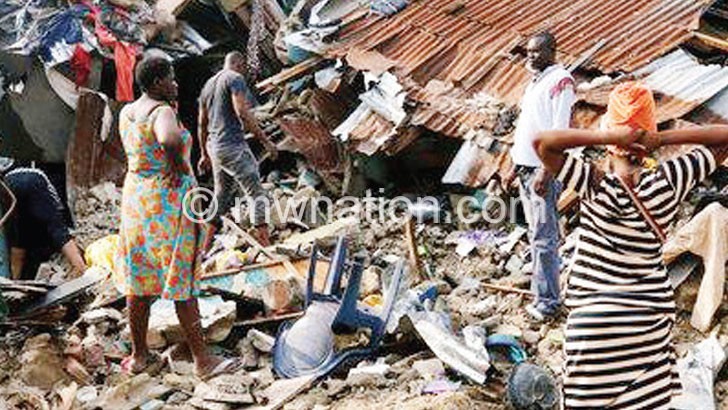There is an urgent need for world leaders, regional groupings and financiers to protect the communities worst-affected by climate change.
Without sufficient global leadership and financing, the problems caused by climate change in Malawi cannot be solved.

The vast majority of the population of 19 million i still depend on rain-fed agriculture amid impacts of climate change, which threaten the production of staple food.
Scanty irrigation makes the population more susceptible to unreliable rains and extreme weather.
Climate change also impacts other sectors such as fisheries and forestry, which provide food and income to rural communities.
The need to respond to the severe impacts of climate change is urgent.
It is the rural majority which is worst hit though it is the actions of wealthy nations that are most to blame for the devastating changes they are experiencing.
Cyclone Idai affected 975 000 Malawians in March 2019, causing damages estimated at £220 million, killing 60, injuring 672 and leaving more than 86 000 homeless.
I was on the ground and saw first-hand the destruction that the cyclone left. Fields were buried in silt, crops nearly ready for harvesting were destroyed, livestock carried away by floodwaters and houses reduced to rubble.
Lucky people escaped to either local evacuation centres or higher grounds, but they needed urgent support. Trócaire assisted them with support from the Start Network and Irish Aid.
Trócaire together with our partners reached over 65 000 people helping them to rebuild their livelihoods and to protect their dignity.
The United Nations said Cyclone Idai was ‘one of the worst weather-related disasters ever to hit the southern hemisphere’. In a matter of hours, it had wiped away many hard-won gains achieved over decades of locally-led initiatives.
However, affected populations worked together to mitigate the impacts of the disaster through community-led actions before, during and after the disaster.
From strengthening riverbanks with sandbags and not farming too close to rivers to planting trees and digging swales, they did their part.
This helped communities prepare and effectively respond to disasters. This minimised the loss and damage.
A Trócaire research on the impacts Cyclone Idai shows that the Trócaire resilience programming contributed towards strengthening household and community resilience and minimise the losses.
This shows that community-led adaption and mitigation efforts are pivotal to addressing the impacts of climate change, but communities cannot tackle this problem alone. They needed strong, coordinated action at national, regional and global levels.
There is an urgent need for the heads of global and regional groupings, states and governments to formulate, implement and adequately resource pro-poor climate change policies and actions.
Without sufficient global leadership and financing, the problems created by climate change cannot be solved—and it will only lead to more injustices as the poorest of the poor who cannot access basic needs.
What is happening in Malawi is just one example of the injustices poor people worldwide face as a result of climate change.
CoP26, the UN climate change talks slated for November in Scotland, is the best platform for world leaders to discuss immediate and determined political action before climate change becomes irreversible.
Source: The Nation_Thursday, September 23, 2021_by Philip Nyasulu_Campigner at Trocaire
